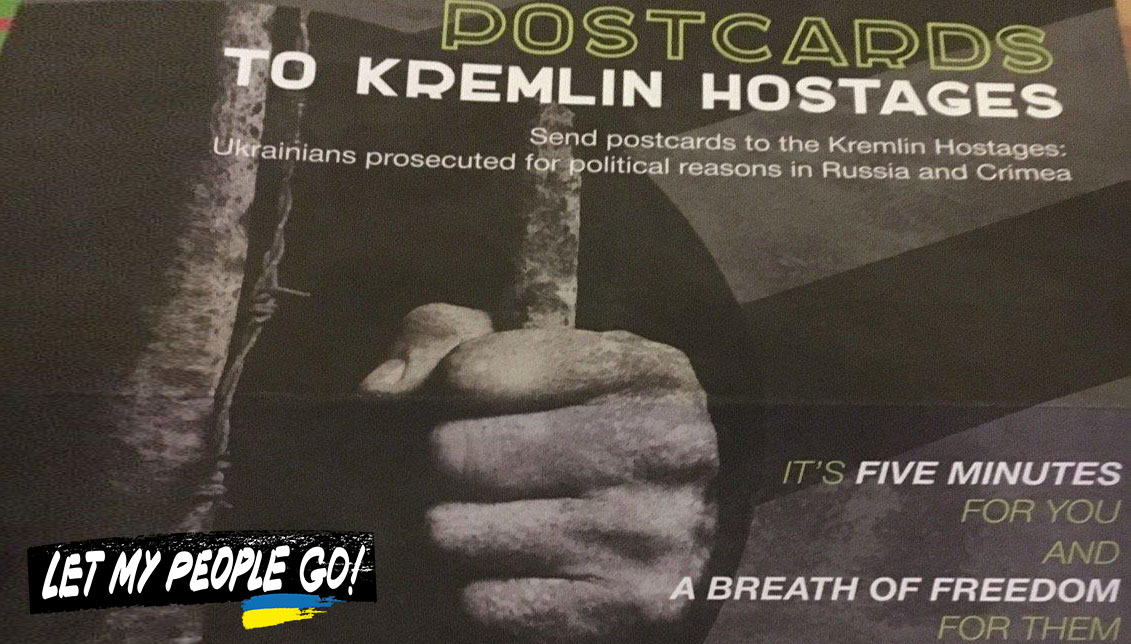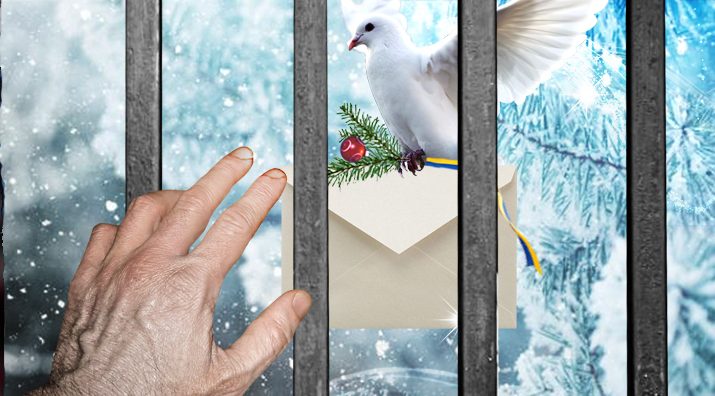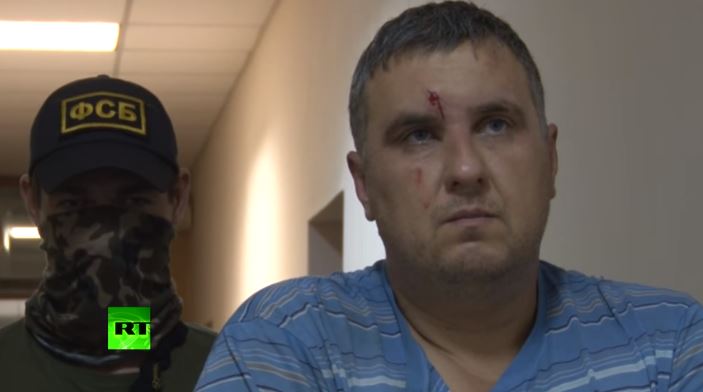The euphoria from the prisoner exchange between Ukraine and Russia which took part on 7 September has somewhat worn off in Ukraine. The 35 Ukrainians who returned home - 24 sailors and 11 political prisoners - are undergoing rehabilitation, giving interviews, where they depict the torture they were subjected to for the sake of extracting "confessions," and getting back to normal life. But discussions on how the exchange became possible, what price Ukraine paid for getting back its citizens, and how to get back the 86 who still remain in Russian captivity are still ongoing.
Giving unique insight for the discussion is Nikolai Polozov, a Russian human rights lawyer who was chosen by the Ukrainian government to coordinate the work of the team of lawyers representing the interests of 24 Ukrainian Navy sailor POWs captured after a Russian attack in the Black Sea. Polozov, who had earlier defended several other Ukrainian political prisoners, including the famous Nadiya Savchenko, told many Ukrainian media what were the key drivers for this release and what are its drawbacks. We translated the most important parts.
The case of the sailors was the locomotive for the exchange
Polozov believes that the case of the 24 Ukrainian Navy sailor POWs was key to the exchange. Although Ukrainian citizens started being illegally imprisoned by Russia starting from 2014, it were the Ukrainian sailors captured in November 2018 while attempting to reach their base in the Azov Sea, who prompted a coordinated campaign to free them from the Ukrainian government, with the president and ministers being involved.
"Over five years, the work in the cases of the Ukrainian political prisoners was very sporadic: the human rights activists worked in some places, the state - in others, but a united strategy was absent," Polozov told Apostrophe.ua.
It was very important to have a united strategy and position to create strong international pressure on the Russian authorities, Polozov said.
"My rationale was that Russian courts will not serve justice in these sorts of cases, they will rubberstamp whatever the Kremlin tells them. Therefore, we needed to create the conditions to make the Kremlin make the right decision."
In the single strategy, Polozov coordinated the legal actions in Russia, the team of 31 lawyers pursued the line that the sailors were prisoners of war who enjoy the protections of the Third Geneva Convention, engaged international partners and coordinating activities with the Ministry of Defense, Ministry of Foreign Affairs, Security Service, Ministry of Justice. It was this strategy, Polozov asserts, that led to the UN International Maritime Tribunal ruling on 25 May 2019 that Russia must release the sailors and ships.
The 24 sailors are still under trial in Russia
After the Tribunal ruling, the negotiation process sped up, Polozov told on air of Espreso.tv.
“Despite the rhetoric of the Russian authorities that the decisions of the Tribunal carry no consequences, they understand the consequences of not implementing them very well. These are sanctions, prohibitions on ships entering ports, prohibitions on refueling. Considering that Russia is a maritime power and sells timber and oil, it began to look for options to implement the decision of the tribunal without actually fulfilling it.”
Since the decision of the tribunal does not prohibit Russia from continuing the trial, in which it accuses the sailors of violating the Russian border, the Russians suggested that they were ready to change the preventive measure and allow the sailors to go home to Ukraine, but in a way that they would still participate in the trial. So, currently, they are still under trial and face up to six years in prison, but were released to Ukraine under the personal guarantee of Ukrainian Ombudswoman Liudmyla Denysova.
Whether Russia will return the ships it seized in the attack, as the Tribunal ruled, is still unclear. The Russian prosecutors can continue the case or drop it, everything depends on the negotiations. Although the sailors were physically freed, many questions remain both regarding the sailors and the ships.

Nothing prevents Russia from taking an unlimited number of Ukrainian hostages to use as bargaining chips
Should Ukraine have just waited for Russia to comply with the decision of the Tribunal, as it did in the Arctic Sunrise case when all the sailors were amnestied and released, and The Netherlands received several millions of dollars after arbitration and the seized ships, instead of organizing a big exchange for shady figures
?
There were two concepts regarding the tribunal decision, Polozov told on air of Espreso.tv.
The first one was of the hawks, the “party of war,” shared by the previous Ukrainian government of ex-President Petro Poroshenko. They maintained that if the tribunal adopted a decision, it should have been pushed through.
The new authorities of Zelenskyy’s government adopted another paradigm - that negotiations were needed. This paradigm was one that suited Russia: technically, it allowed complying with the Tribunal’s decision and avoiding sanctions.
“Nobody invited me to participate in the negotiations. For me, the most important thing is to physically save the citizens of Ukraine... But this decision can have political consequences. I understand why Zelenskyy adopted this concept - because of the need to get short-term results. Switching from confrontation to negotiations gave results in the short-term perspective. But I’m not ready to say how it will impact the mid- and long-term perspectives. …
In my view, the strategy towards the Kremlin of the last five years was effective on the foreign affairs track. President Poroshenko and his team built a strong coalition of western partners, aiming for the long-term perspective. This had its drawbacks - the Kremlin refused to talk to Poroshenko, the process of freeing hostages was very difficult. Now the ice has been broken, hostages are freed, but time will show what consequences will follow in foreign affairs, whether there will be some weakness regarding Russia.
If we are talking about the sailors, an alternative scenario could have looked like this. The Tribunal made its ruling, following which Ukraine puts forward its ultimatum and with the help of western partners starts pressuring Russia with sanctions. Sanctions would have impacted Russia, these are specific sea-related sanctions. Russia is a maritime state, plus it has a lot of infrastructure projects at sea, including Nord Stream 2, which could have also potentially been sanctioned.”
Russia's goal: to put the question of Crimea to rest once and for all
Polozov stated that the Kremlin’s number one goal is to put the question of Crimea for rest once and for all.
“We don’t know how the negotiations are ongoing, which conditions are being put forward, what the Russian side wants in exchange. In my view, it’s absolutely necessary to exchange somebody for somebody, but if we exchange somebody for something, for some political preferences - here we need to see whether Ukrainian interests will suffer from such negotiations. But we need to save people, and of course, the people are waiting for it very much.
But here we face a significant problem. Let’s say that Putin now has reached an agreement with Zelenskyy and gave back 35 people, then he will give back 113 people [the number of remaining Ukrainian political prisoners in Russia voiced by Liudmyla Denysova - Ed.] But what prevents him from getting ten times more hostages in Crimea tomorrow? In Russia proper, if we disregard occupied Crimea, hundreds of thousands of Ukrainian citizens come to visit their relatives, to earn money, etc. You can grab several dozen people and declare them terrorists, extremists, saboteurs. That’s why this process can, unfortunately, be endless, and the Kremlin can constantly take hostages and then trade them with Ukraine and the West,” he shared with Apostrophe.ua.
Another question that worries Nikolai Polozov is why only one Crimean Tatar was in the exchange list if Crimean Tatars make up the majority of the list of the Ukrainian political prisoners of the Kremlin.
“What will happen next? There can be several scenarios. A negative one, where Ukraine will be forced to a bad peace on Russian terms - with the federalization of Donbas, the final loss of Crimea, etc. Maybe Putin won’t take any new hostages, but what shall we do with those who still remain in the Crimea, those who did not accept the Russian occupation, should they just pack their things and go? Most of the Crimean Tatars took up a [pro-Ukrainian - Ed] patriotic position, should they just lose their homeland for the second time?
I don’t believe in a positive scenario. The Kremlin hasn’t done all these things to do good for Ukraine. I don’t believe in this. They hate their own people. Why should they like Ukrainians?”
Regarding Zelenskyy’s proposed changes to the Constitution to decrease the number of MPs from 450 to 300
Commenting on one of Zelenskyy’s initiatives to cut down the number of MPs in the Ukrainian parliament, Polozov compares the situation in Ukraine’s parliament, where Zelenskyy’s Servant of the People holds a single-party majority, with Putin’s Yedinaya Rossiya in Russia speaking to Espreso.tv.
“In this situation, it’s very difficult to avoid getting on the wrong track which could lead to dictatorship. The fewer MPs, the easier it is to control them. Considering MPs have been stripped of their immunity, this means that if the authorities don’t like some MP, they can pressure her. This reminds me of the events in Russia 15-20 years ago when Putin just came to power and started building a rigid vertical of power. It’s very important to not fall into the tyranny we have there [in Russia - Ed].
Is it possible to avoid such a scenario? Yes, but only if different positions are represented in the parliament. So it won’t be, like they say in Russia, that ‘parliament is not a place for discussions.” Here lies a serious danger. It’s very easy to lose freedom. And gaining it again is often expensive and painful.”
Read also:
- 35 Ukrainian hostages of the Kremlin, including Oleg Sentsov, finally home. 86 still remain
- Ex-Kremlin prisoners tell about torture, horrors of Russian prisons
- Portnikov: The goals of Zelenskyy and Putin for the “Big Exchange”
- The release of “DNR” fighter Tsemakh is Ukraine’s gift to Putin, says Portnikov
- An unequal exchange: the spies and terrorists Russia got for releasing Oleg Sentsov and 34 other Ukrainian political prisoners & POWs
- “Russia is not ready to let Ukraine go” – Sentsov’s first public speech after Russian prison





